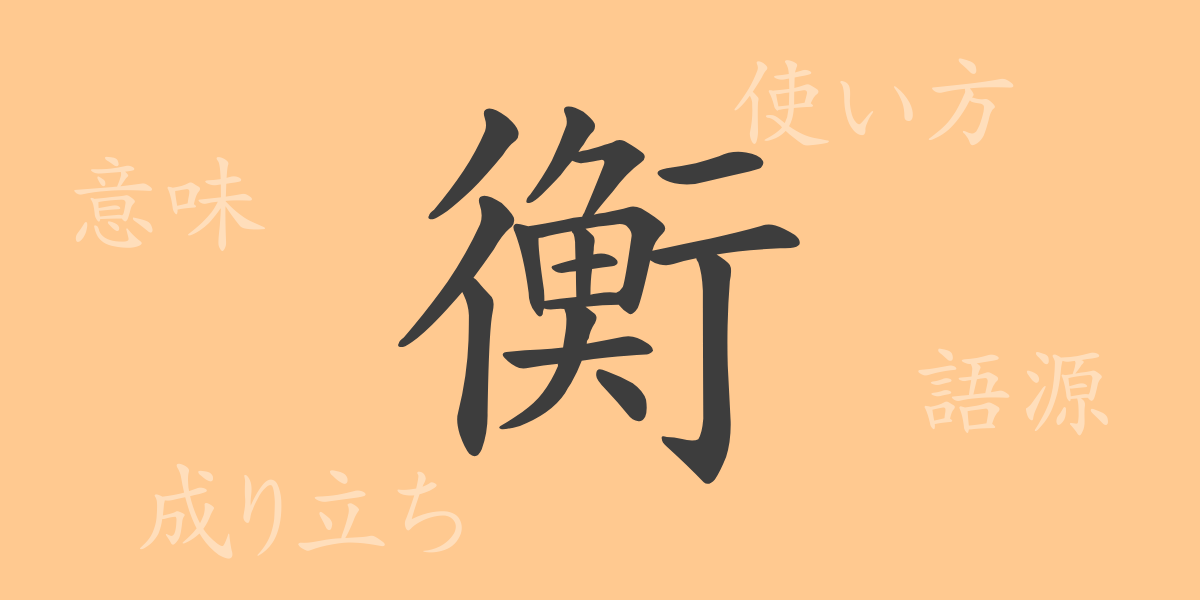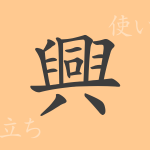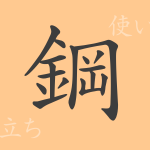There are many kanji characters in the Japanese language that possess profound meanings. Among them, the kanji “衡(こう)” may not be frequently encountered in daily life, but it plays an important role in specific fields such as law, business, and literature. In this article, we will explore the origin, meaning, usage, readings, and related idioms and phrases of the kanji “衡(こう).” By delving into this kanji, we hope to reveal its significance in the Japanese language.
Origin of 衡(こう) (Etymology)
The kanji “衡(こう)” originates from the tool used in ancient China for weighing, specifically the crossbar of a balance scale. The horizontal bar of the scale, “衡(こう),” symbolizes balance and has come to mean equilibrium and balance. This character is often used to indicate standards or measures, reflecting a cultural emphasis on fairness and equality.
Meanings and Usage of 衡(こう)
The kanji “衡(こう)” primarily means “to compare and measure,” “balance,” and “standard.” In legal and business contexts, it appears as “衡平(こうへい),” meaning “impartiality” or “fair judgment.” Another common term is “衡量(こうりょう),” which conveys the nuance of “considering and judging thoroughly.”
Readings, Stroke Count, and Radical of 衡(こう)
The following are the readings and basic information about the kanji “衡(こう)”:
- Readings: On’yomi (音読み) is “コウ”; there is no Kun’yomi (訓読み).
- Stroke count: It has 16 strokes.
- Radical: The radical is 行部(ぎょうぶ), indicating its relation to movement or process.
Idioms, Phrases, and Proverbs Using 衡(こう)
Here are some idioms, phrases, and proverbs that include the kanji “衡(こう)”:
- 衡平(こうへい) – Fairness and impartiality.
- 衡量(こうりょう) – To compare and judge thoroughly.
- 天衡(てんこう) – The principles of nature or the natural order.
- 金衡(きんこう) – The standard of monetary value or weight.
Conclusion on 衡(こう)
The kanji “衡(こう)” is crucial for expressing concepts of comparison, balance, and standards, frequently used in fields such as law, business, and philosophy. Understanding its deep meanings and historical background allows for a richer appreciation of Japanese language expressions. Through this exploration, we have unraveled the basic knowledge and related idioms of “衡(こう),” highlighting the depth of the Japanese language. We hope this article has helped you appreciate the intricacies and cultural significance of this kanji.

























